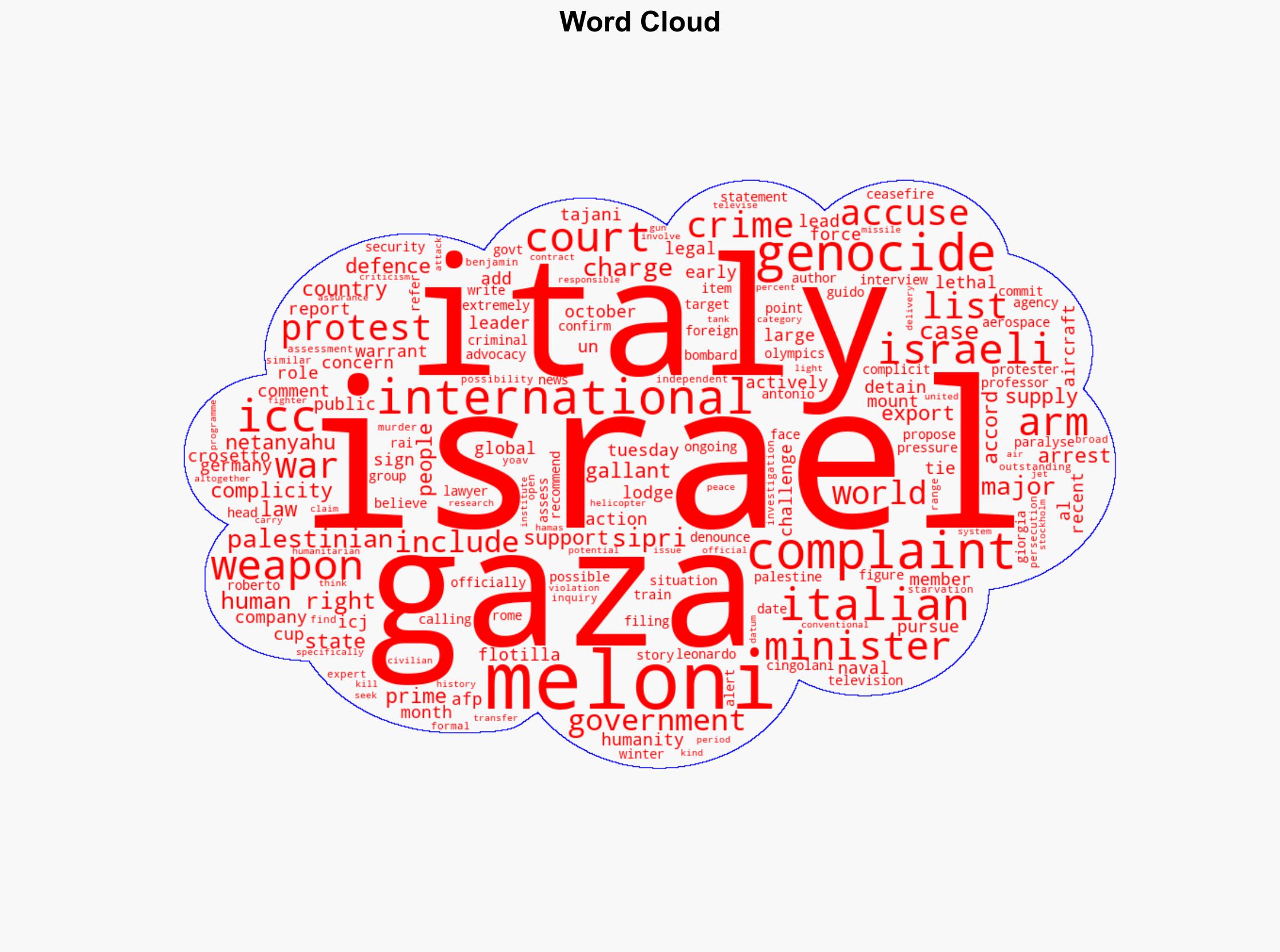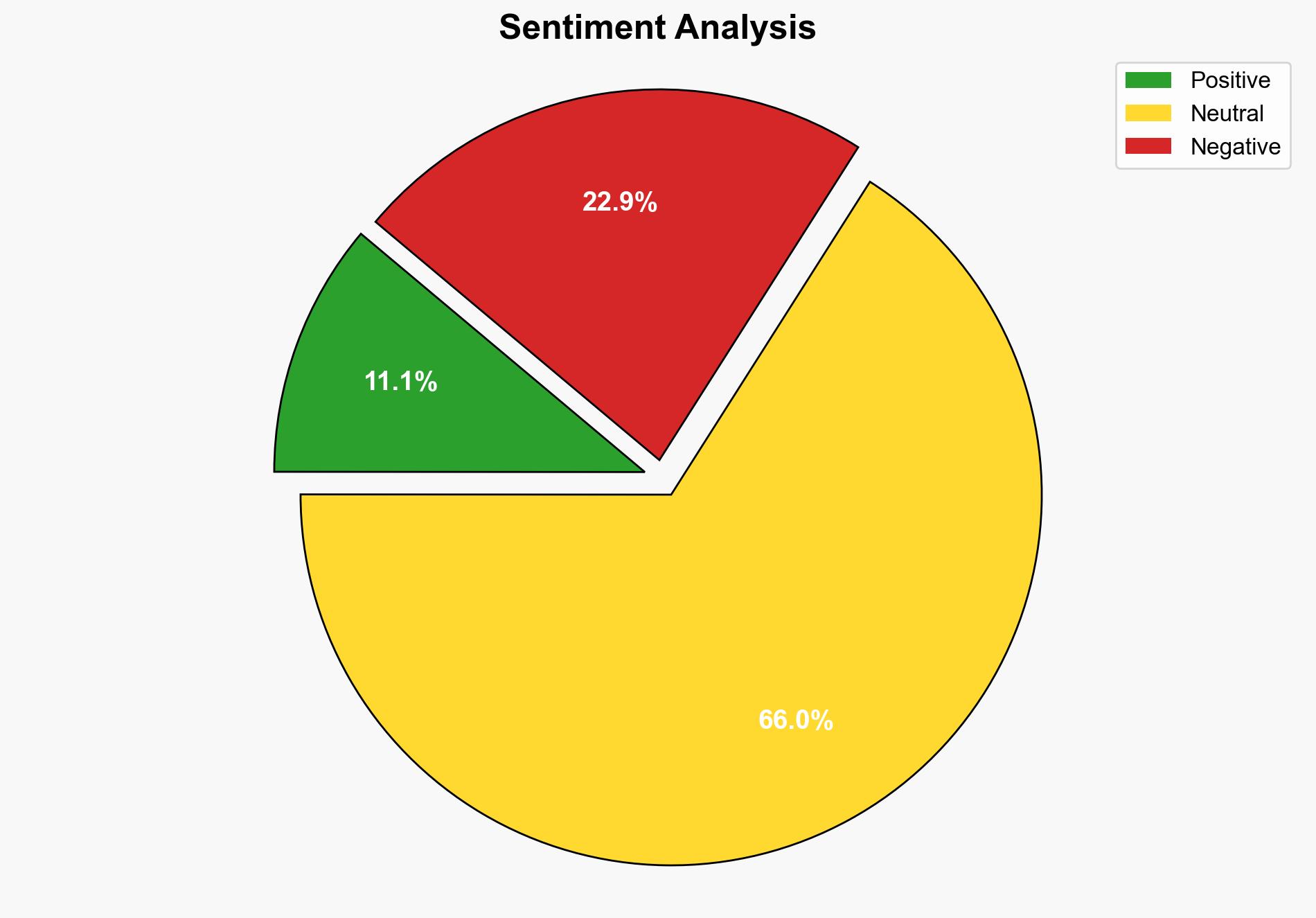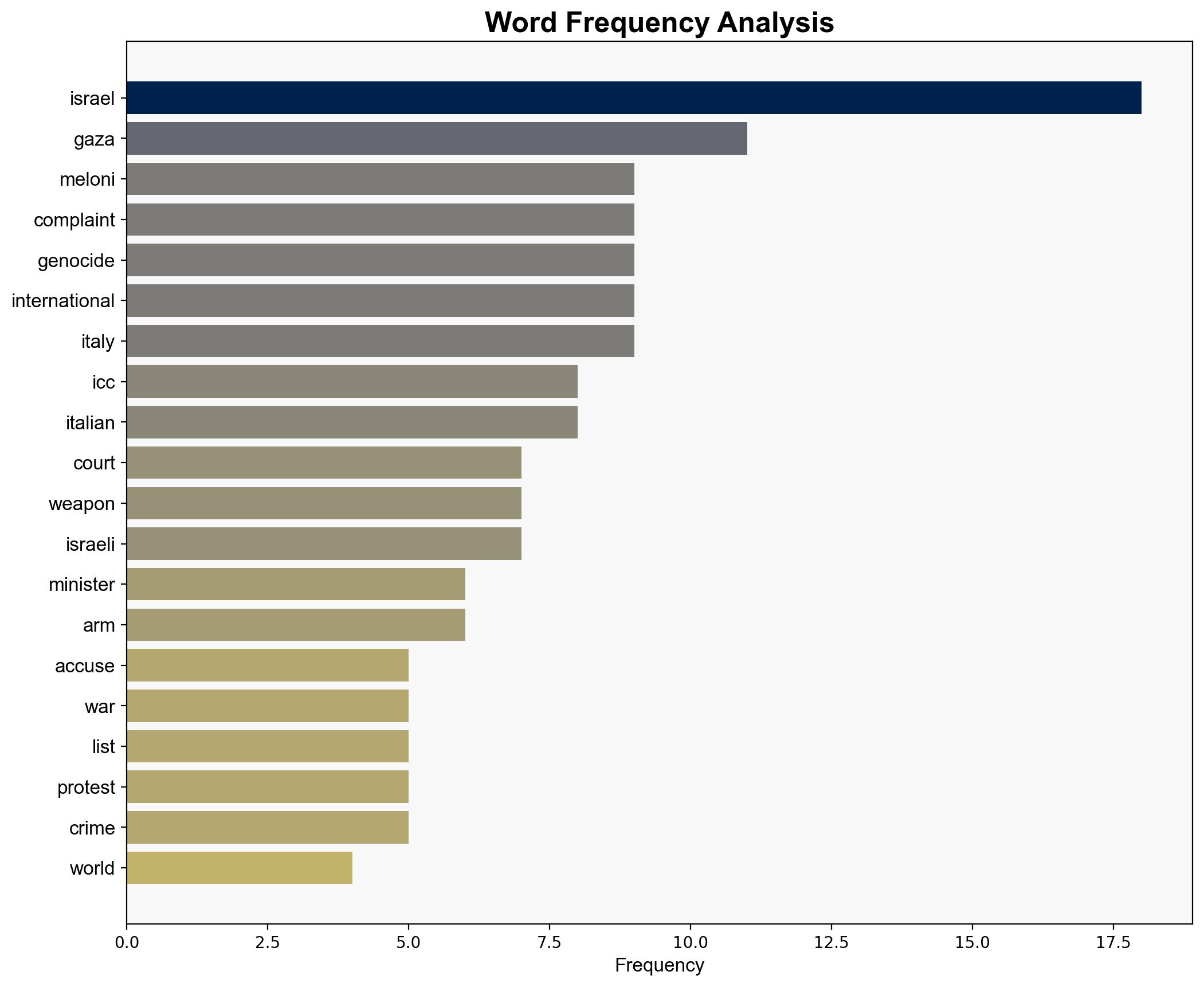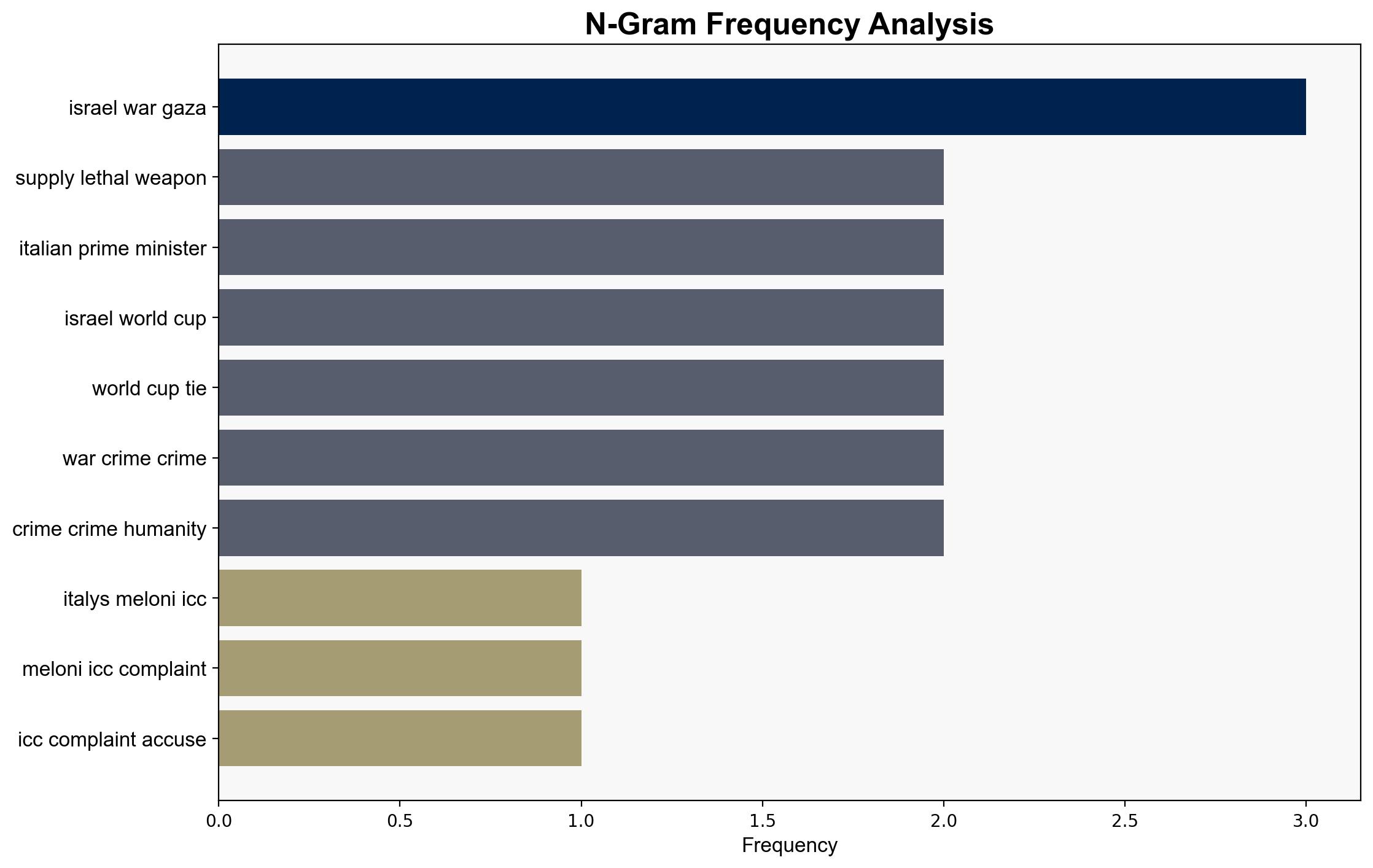Italys Meloni says ICC complaint accuses her of Gaza genocide complicity – Al Jazeera English
Published on: 2025-10-08
Intelligence Report: Italys Meloni says ICC complaint accuses her of Gaza genocide complicity – Al Jazeera English
1. BLUF (Bottom Line Up Front)
The most supported hypothesis is that the ICC complaint against Giorgia Meloni is primarily a strategic move to pressure Italy into reconsidering its arms support to Israel amidst the Gaza conflict. Confidence in this assessment is moderate due to the complexity of international legal proceedings and geopolitical dynamics. Recommended action includes diplomatic engagement with relevant stakeholders to address the underlying concerns and mitigate reputational risks.
2. Competing Hypotheses
1. **Hypothesis A**: The ICC complaint is a legitimate legal effort to hold Italy accountable for its role in supplying arms to Israel, which are allegedly used in actions constituting genocide in Gaza.
2. **Hypothesis B**: The complaint is primarily a political tool used by Palestinian advocacy groups to exert international pressure on Italy to cease arms exports to Israel and influence public opinion.
Using Analysis of Competing Hypotheses (ACH), Hypothesis B is better supported by the evidence. The timing of the complaint, coinciding with mass protests and international criticism, suggests a strategic alignment with broader advocacy efforts rather than purely legal motivations.
3. Key Assumptions and Red Flags
– **Assumptions**: It is assumed that the ICC has the capacity and willingness to pursue such a complaint against a NATO member state. It is also assumed that the complaint is based on verifiable evidence of complicity.
– **Red Flags**: The lack of detailed evidence in the public domain supporting the genocide claim raises questions about the complaint’s legal robustness. Additionally, the involvement of high-profile figures and organizations may indicate a coordinated advocacy campaign rather than an isolated legal action.
4. Implications and Strategic Risks
– **Geopolitical Risks**: Increased tensions between Italy and Israel could strain diplomatic relations and impact Italy’s role in Middle Eastern geopolitics.
– **Economic Risks**: Potential disruptions in arms trade agreements could have economic repercussions for Italy’s defense industry.
– **Social Risks**: Domestic unrest could escalate if public opinion sways significantly against the government’s foreign policy.
5. Recommendations and Outlook
- Engage in diplomatic dialogue with both Israeli and Palestinian representatives to address concerns and explore ceasefire options.
- Conduct a thorough internal review of arms export policies to ensure compliance with international humanitarian law.
- Scenario Projections:
- Best Case: Diplomatic resolution leads to de-escalation and improved international standing for Italy.
- Worst Case: Legal proceedings advance, leading to sanctions and significant diplomatic fallout.
- Most Likely: Continued international pressure results in policy adjustments but no formal ICC action.
6. Key Individuals and Entities
– Giorgia Meloni
– Guido Crosetto
– Antonio Tajani
– Roberto Cingolani
– Benjamin Netanyahu
– Yoav Gallant
7. Thematic Tags
national security threats, international law, arms trade, geopolitical strategy, Middle East conflict




